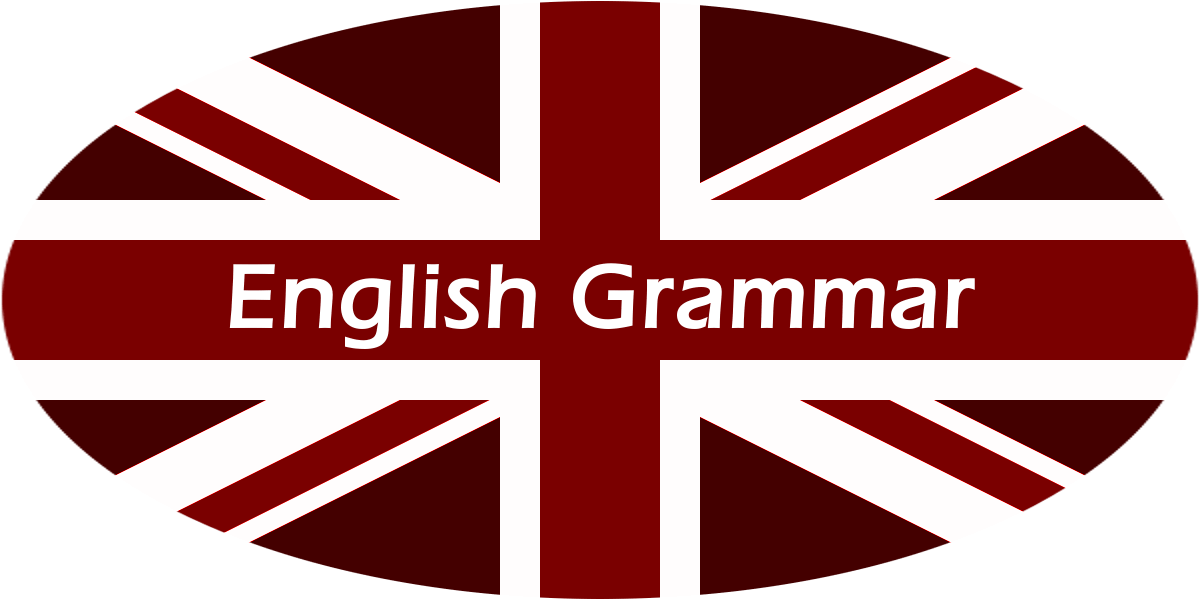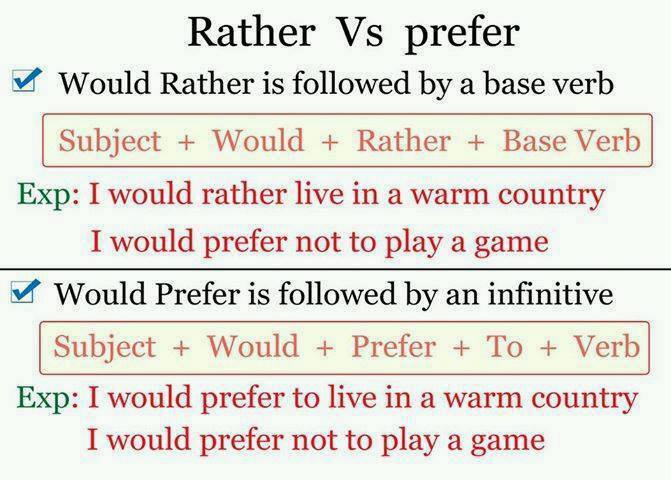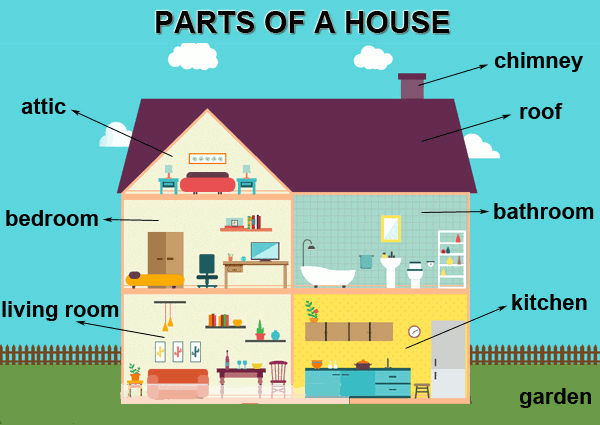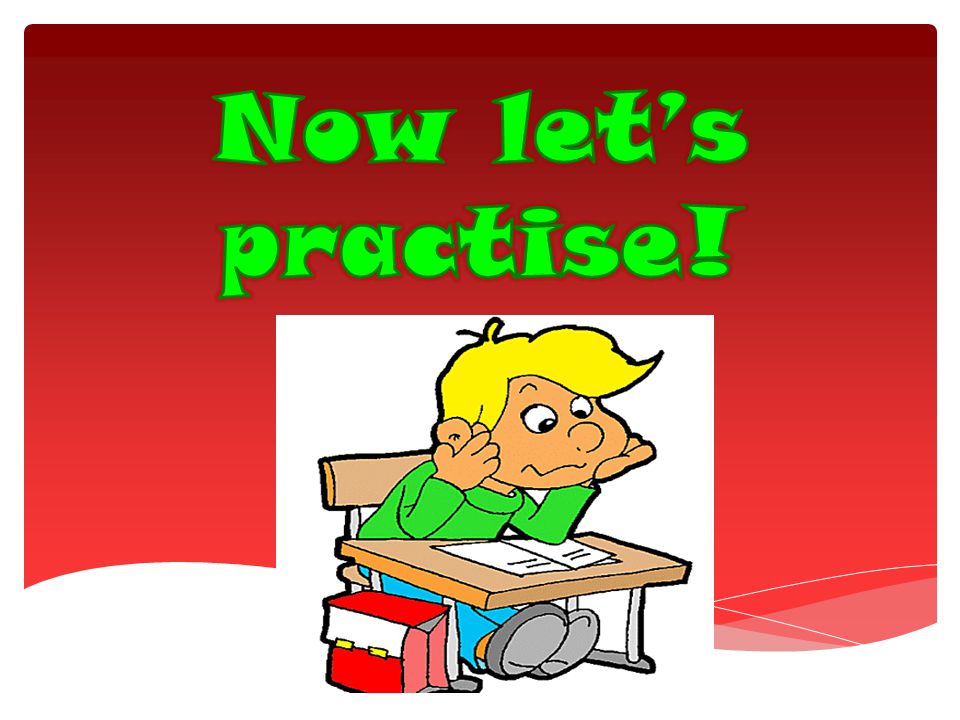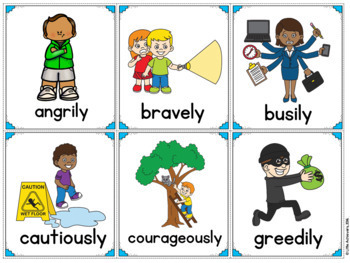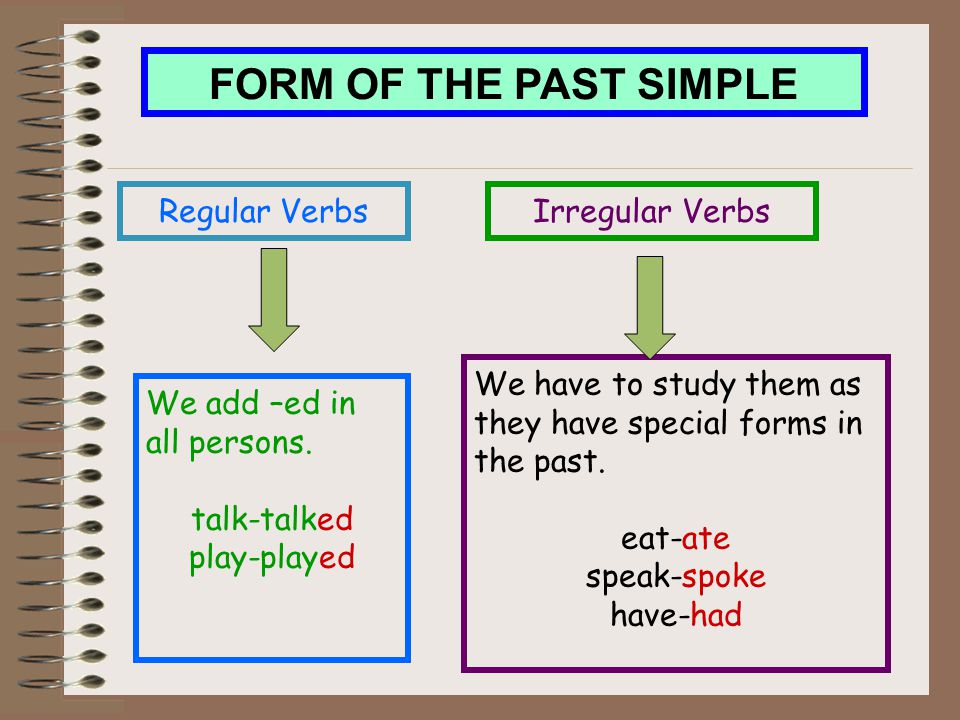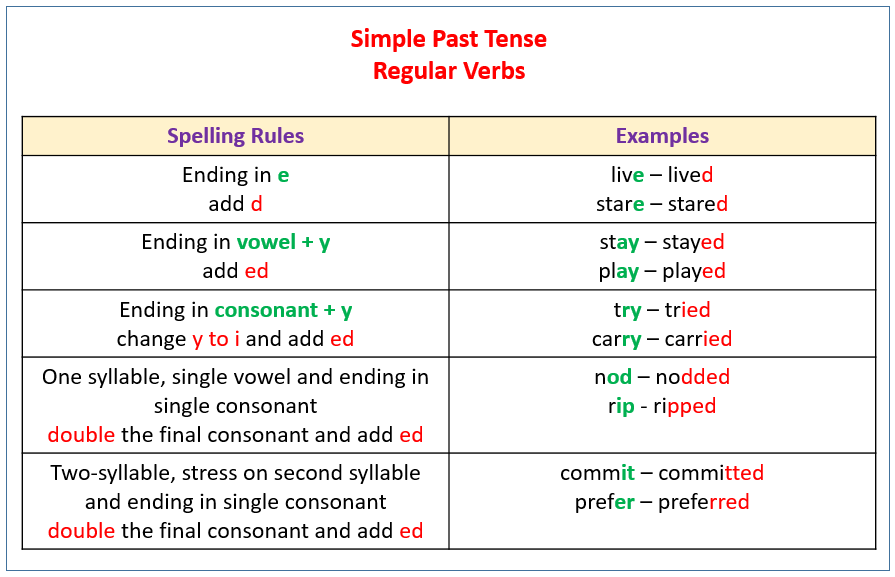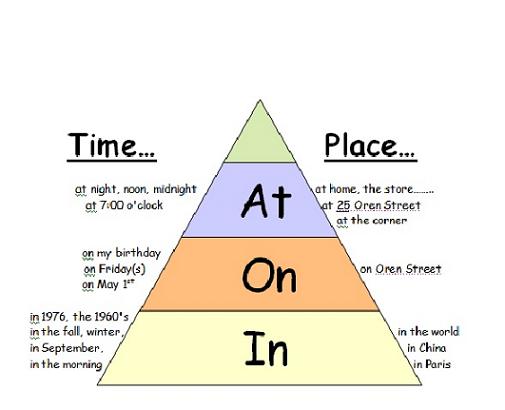domingo, 19 de abril de 2020
viernes, 17 de abril de 2020
15 pieces of Interactive floor Games for kids
Food Game
Sentence Monkey
GRAMMAR
UNIT 6: QUANTIFIERS
Let's practicehttps://www.grammarbank.com/quantifiers-exercises.ht
TAG QUESTIONS
Yesterday was so much fun, wasn't it?
The trains are never on time, are they?
Nobody has called for me, have they?
eg. You like dogs, don't you?
She doesn't drink coffee, does she?
When the verb is in the past simple, we usually use did or didn'tin the question tag.
eg. We went to the cinema, didn't we?
You didn't see the doctor, did you?
When we use a modal verb (eg. can, could, will,) we use those verbs in the question tag.
eg. She can drive, can't she?
I will see you in the afternoon, won't I?
UNIT 5: RATHER AND PREFER
UNIT 5: PAST SIMPLE PASSIVE
UNIT 4: PRESENT PERFECT
Adverbs of Manner
How to form adverbs of manner
Regular adverbs
Adverbs of manner are usually formed by adding ‘-ly’ to the adjective:
- careful → You should drive carefully at night.
- polite → Mary looks sad. Could you ask her politely, what has happened to her?
- serious → Seriously speaking, I don’t like this idea.
1. If the adjective ends in ‘-le’, remove ‘-e’ and add ‘-y’:
- gentle → This mechanism should be cleaned very gently.
- terrible → I will miss you terribly.
2. If the adjective ends in a consonant + ‘-y’, change ‘-y’ to ‘-ily’:
- angry → She looked at me angrily.
- easy → Jack can do grammar exercises easily.
- noisy → Your old printer works noisily, you should change it for a new one.
3. If the adjective ends in ‘-ful’, double the ‘-l’ and add ‘-y’:
- beautiful → Mary has cooked the meat beautifully.
- successful → Not all students passed their exams successfully.
Irregular adverbs
Some adverbs of manner are not formed by adding ‘-ly’:
1. ‘Well’ is the adverb of ‘good’. We often use ‘very’ and ‘quite’ with ‘well’:
- Jane speaks German and French very well.
- Nick runs long distances quite well.
2. Some adjectives ending in ‘-ly’, like ‘friendly’, ‘lovely’, ‘silly’, ‘ugly’, don’t change to become adverbs.
- He spoke to me in a friendly manner. (NOT:
He spoke to me friendlyly) - Her dancing is so lovely. (NOT:
She dances so lovelyly).
3. Adverbs of manner, like ‘early’, ‘late’, ‘fast’, ‘hard’, ‘low’, have the same form as their adjectives:
- The bus is late again (adjective).
- A am afraid, we’ll arrive late (adv).
- Tom drives very fast, it’s dangerous.
- We’re working hard all day long.
| Note: An adverb of manner should NOT be put between a verb and an object: |
| – He plays football perfectly. NOT: Watch this short video from Top English to learn more about adverbs of degree: |
Regular Verbs and Irregular Verbs
Regular Verbs - Pronunciation Rules
After unvoiced/voiceless sounds such as /p/, /f/, /s/, /k/, /ʃ/, and /ʃt/ the final -ed is pronounced like /t/ as in the word cat. Note that the -e remains silent.
After voiced sounds such as /b/, /g/, /v/, /z/, /ʓ/, /dʓ/, /m/, /n/, /ŋ/, /l/, /đ/, /r/ and vowel sounds the final –ed sound is pronounced like /d/ as in good. Note that the –e remains silent.
For verbs ending in /d/ and /t/ the final -ed is pronounced /Id/ as in the final two letters of the word did. Note here that the -e is not silent and this final /-ed/sound adds another syllable to the end of the verb.
We use the present simple for routines and actions that we usually do.
Expressions that we use with the present simple are:
Often, Usually, Never, Always, Sometimes.
REMEMBER :
HE/SHE/IT: Affirmative Verb+s/es
IN NEGATIVES AND QUESTIONS
Negative: doesn't +Verb (infinitive)
Interrogative: Does+ subject + Verb (infinitive)
Click here for exercise 1: Forms and pronouns
Click here for exercise 2: Third person singular
Click here for exercise 3: Negative form
Click here for exercise 4: Questions
Click here for exercise 5: Mixed forms
Do you want to play a game?
Click here to start👇
ttps://www.eslgamesplus.com/intermediate-classroom-games/
Past simple – sentences
We can use past simple sentences to talk about things we did in the past.
I played football.
We had lots of fun!
She didn't watch a film.
How to use them
For regular verbs, the past simple ending is ed, for example:
play - played
like - liked
want - wanted
For irregular verbs, there is a special past simple form, for example:
go - went
eat - ate
write - wrote
have - had
For negatives, use didn't and the verb, but don't change the verb to the past form.
I didn't play hockey.
They didn't go to school.
Past simple – questions
We can use past simple questions to ask about the past.
Did you have fun with your friends yesterday?
Where did she go for her last holiday?
What did they watch on TV last night?
How to use them
Use did and the verb, but don't change the verb to the past form.
Did you have a nice weekend?
What did he learn at school yesterday?
When did they see the film?
We usually add time words at the end.
Did they play a game yesterday?
Did you visit LearnEnglish Kids last week?
What did he have for dinner last night?
We make yes or no answers with did or didn't.
Did you finish your homework? Yes, I did.
Did your friend call you yesterday? No, she didn't.
UNIT 8: USED TO/ DIDN’T USE TO
It is used to express habits and customs
I used to play videogames
eg. When I was a boy... I used to play marbles
I used to watch cartoons
My father didn’t use to play videogames.
Did you use to go to the cinema?
Yes, I did
No, I didn’t
Yesterday was so much fun, wasn't it?
The trains are never on time, are they?
Nobody has called for me, have they?
eg. You like dogs, don't you?
She doesn't drink coffee, does she?
When the verb is in the past simple, we usually use did or didn'tin the question tag.
eg. We went to the cinema, didn't we?
You didn't see the doctor, did you?
When we use a modal verb (eg. can, could, will,) we use those verbs in the question tag.
eg. She can drive, can't she?
I will see you in the afternoon, won't I?
Past Passive
Would Rather vs Would Prefer
They both express preference. Though they have similar meanings, they are used in different ways.
Would Rather
When the person himself expresses a preference on something referring to the present or future:
Subject + would rather ('d rather) + base form of verb
I would rather (I'd rather) stay at home than go out right now.
Would Prefer
When the person himself expresses a preference on something referring to the present or future:
Subject + would prefer + to infinitive + verb
I would prefer ('d prefer) to watch TV rather than (to) do shopping.
You can pracice here!!👇
UNIT 3: PRESENT PERFECT
Present Perfect
1. Use of the Present Perfect
1.1. result of actions in the past is important in the present – It is not important when the actions happened.
I have cleaned my room.
1.2. recently completed actions
He has just played handball.
1.3. states beginning in the past and still continuing
We have lived in Canada since 1986.
1.4. together with lately, recently, yet
I have been to London recently.
2. Signal words
- just
- yet
- never
- already
- ever
- so far
- up to now
- recently
- since
- for
3. Form
have/has + past participle *
4. Examples
4.1. Affirmative sentences in the Present Perfect – regular verbs
| Long forms | Contracted forms |
|---|---|
| I have cleaned my room. | I've cleaned my room. |
| You have cleaned your room. | You've cleaned your room. |
| He has cleaned his room. | He's cleaned his room. |
4.2. Affirmative sentences in the Present Perfect – irregular verbs
| Long forms | Contracted forms |
|---|---|
| I have gone home. | I've gone home. |
| You have gone home. | You've gone home. |
| He has gone home. | He's gone home. |
4.3. Negative sentences in the Present Perfect – regular verbs
| Long forms | Contracted forms |
|---|---|
| I have not cleaned my room. | I've not cleaned my room. |
| I haven't cleaned my room. | |
| You have not cleaned your room. | You've not cleaned your room. |
| You haven't cleaned your room. | |
| He has not cleaned his room. | He's not cleaned his room. |
| He hasn't cleaned my room. |
4.4. Negative sentences in the Present Perfect – irregular verbs
| Long forms | Contracted forms |
|---|---|
| I have not gone home. | I've not gone home. |
| I haven't gone home. | |
| You have not gone home. | You've not gone home. |
| You haven't gone home. | |
| He has not gone home. | He's not gone home. |
| He hasn't gone home. |
4.5. Questions in the Present Perfect – regular verbs
| Long forms | Contracted forms |
|---|---|
| Have I cleaned the room? | There are no contracted forms. |
| Have you cleaned the room? | |
| Has he cleaned the room? |
4.6. Questions in the Presentast Perfect – irregular verbs
| Long forms | Contracted forms |
|---|---|
| Have I gone home? | There are no contracted forms. |
| Have you gone home? | |
| Has he gone home? |
* past participle:
- regular verbs → infinitive + -ed
- irregular verbs → 3rd column of the table of the irregular verbs
UNIT 3: PRESENT CONTINUOUS FOR THE FUTURE
How to form Present Continuous
To make the Present Continuous with future meaning, we use:
Affirmative sentences
am / is / are + the ‘-ing’ form of the verb and add a time marker.
- I’m staying at home tonight.
- She isn’t working on Thursday.
- We’re meeting at two o’clock.
- John and Samantha are getting married tomorrow.
Negative sentences
We form the negative by adding ‘not‘ to either the full form or short (contracted) form:
am / is / are + not + the ‘-ing’ form of the verb
- We’re not having a meeting this afternoon.
- =We aren’t having a meeting this afternoon.
- =We are not having a meeting this afternoon.
- I’m not coming to the party tonight.
- = I am not coming to the party tonight.
Questions
To form a question, we rearrange the word order, placing the verb ‘be’ before the subject:
am / is / are + subject +the ‘-ing’ form of the verb
- Are you going to the concert tomorrow?
- Is your mom joining us for dinner next week?
When to use Present Continuous with future meaning
We often use the Present Continuous to talk about future arrangements. A future arrangement is a plan that we have decided and organised with another person, a group of people or a company:
- I’m working over the New Year. (this arrangement is between the speaker and his/her employer)
- We are staying with friends when we get to Boston.
- We’re meeting Helen at 3 o’clock tomorrow afternoon.
It is not always necessary to state who the arrangement is with:
- I am leaving tomorrow. (I’ve already bought my train ticket.)
- So what are we all doing at Christmas?
We often use the Present Continuous to talk about things we are about to start doing. This is especially common with verbs of movement, such as go, come, leave, etc.:
- I’m going to bed now – goodnight.
- Will you help me finish the housework? – Sorry, I can’t: I’m leaving for work now.
Certain verbs, actions or situations cannot be used with the Present Continuous with future meaning because they are not part of a plan, an arrangement or an intention. The present continuous tense for the future can only be used when an action or situation can logically be planned in advance:
My leg’s hurting tomorrow. Is NOT possibleHe’s having an accident in March. Is NOT possibleIt’s snowing next week.Is NOT possible
Here’s a good video from To Fluency explaining the difference between ‘will’, ‘going to’ and Present Continuous for future actions and events👇
Modal Verbs of Probability
1:
Talking about the present:
must / might / could / may / can't + infinitive
For example:
I am waiting for Julie with another friend, David.
I ask: 'Where is Julie?'
David guesses:
·
She must be on the bus. (I'm fairly sure this is a good
guess)
·
She might come soon. (maybe)
·
She could be lost. (maybe)
·
She may be in the wrong room. (maybe)
·
She can't be at home. (I'm fairly sure this isn't true)
Notice that the opposite of 'must'
is 'can't in
this case.
.Will / won't
We use will and won't when we are very sure:
·
She'll be at work now.
.Should / shouldn't
Should and shouldn't are
used to make an assumption about what is probably true, if everything is as we
expect:
·
They should be there by now.
·
It shouldn't take long to drive here.
This use of should isn't usually used for negative events. Instead,
it's a better idea to use will:
·
The underground will be very busy now
(not: 'should be').
.Can
Can is
used for something that is generally possible, something we know sometimes
happens:
·
Prices can be high in London.
Can is
not used to talk about specific possibilities:
·
He could be on the bus (not: 'can be').
.Could
We can use could
+ infinitive to talk about a general possibility
in the past (compare with the use of 'can' above):
·
Prices could be high in the sixteenth
century.
This is not used to talk about specific possibilites
in the past (instead we use could
+ have + past participle):
·
He could have been working late (not:
'could be'. As this is a specific possiblity, 'could be' is present tense)
·
Shall
We can use shall
I and shall we + infinitive to make offers and suggestions and to ask for advice.
·
Shall I get you some medicine?
We often use would to make
requests. It’s a more polite and indirect form of will.
·
Would
you like to play golf?
We often use would
(or the contracted form ‘d ) in
the main clause of a conditional
sentence when we talk about imagined situations.
. He wouldn’t like it if you wore his helmet
PASSIVE TENSE
VERB TO BE + PAST PARTICIPLE
When we say what people do, we use ACTIVE VERBS .
Eg. I buid, I speak, etc.
When we say what happens to people or things ( what is done to them) we use the PASSIVE.
The OBJECT of an ACTIVE VERB corresponds to the SUBJECT of the PASSIVE verb.
ACTIVE A does B
PASSIVE B is done (by) A
Active : The gardener waters the flowers every evening
Passive: The flowers are watered by the gardener every evening.
Active : Helen doesn't drink anything in parties.
Passive: Nothing is drunk by Helen in parties.
Active : Who sells umbrellas?
Passive: Who are umbrellas sold by?
Active : My mother doesn't paint the walls.
Passive: The walls aren't painted by my mother.
- If + subject + present simple, subject + present simple
- If + subject + present simple, subject + simple future
Monday 28th September
Comparative
- We use the comparative to compare one person or thing with another person or thing.
- We use the superlative to compare one person or thing with his/ her/ its whole group.
Rules
Short adjectives
Adjective Comparative Superlative Spelling
-------------------------------------------------------------------------------------------------------------------------- old older the oldest add er/ est
tall taller the tallest
cheap cheaper the cheapest
-----------------------------------------------------------------------------------------------------------------------
late later the latest adjectives ending in e
------------------------------------------------------------------------------------------------------------------------
fat fatter the fattest one vowel+ one conso
big bigger the biggest nant...double
thin thinner the thinnest
--------------------------------------------------------------------------------------------------------------------------
happy happier the happiest change y to i
easy easier the easiest
Long adjectives
Adjectives with two syllables not ending in -y and adjectives with 3 or more syllables use more and the most.
Adjective Comparative Superlative
beautiful more beautiful the most beautiful
intelligent more intelligent the most intelligent
Irregular Comparative and Superlative
Adjective Comparative Superlative
Good better the best
Bad worse the worst
Little lesss the least
Far farther the farthest
Much/many more the most
Tuesday 12th May
Simple Future with Will
We use "Will" future tense for:
1. Prediction (the things that we predict to happen in the future)
I think it will rain tomorrow.
2. The actions that we decide to do now, at the moment of speaking
I am hungry. I’ll have a toast.
3. Offers
You don’t have a car. I will take you to the airport.
4. Promises
I will come home before nine, dad.
Future Simple Tense - Will Won’t
What do you want to be in the future?
How are you?
I know we have already seen the past continuous,
but I'd like you to look at the grammar again.👇
Past Cotinuous
subject + was/were + V -ing.I was studying.
Tom was working.
The children were playing.
| AFFIRMATIVE STATEMENTS | NEGATIVE STATEMENTS | ||||
| Subject | Past Tense of Be | Base Form of Verb +Ing | Subject | Past Tense of Be + Not | Base Form of Verb +Ing |
| I He She It | was | working. | I He She It | was not (wasn't) | working. |
| We You They | were | working. | We You They | were not (weren't) | working. |
Yes / No Questions
| YES/NO QUESTIONS | ||||||||
| Past Tense of Be | Subject | Base For of Verb + Ing | Short Answers Affirmative | Short Answers Negative | ||||
| Was | I he she it | working? | Yes, | I he she it | was | No, | I he she it | was not (wasn't) |
| Were | we you they | working? | we you they | were | we you they | were not (weren't) | ||
- Most verbs ended with -y, add -ing
- Verbs that ended with -e, drop the -e and add -ing
- Verbs that ended with -ee, add -ing
- Verbs ended with -ie, change -ie to -y, add -ing
Tuesday 5th May
Past Simple
1. Simple past of Irregular verbs( which have to be memorized)
Affirmative case
have-had go-went ride-rode
come-came get-got buy-bought
take-took fly-flew write-wrote
eat-ate meet-met see-saw
2. Simple past of regular verbs
Affirmative case
Spelling rules:
1) Add -ed to the infinitive
2) Verbs ending in -e add only -d
3) Double the final consonant before adding -ed with verbs of only one syllable, ending in one vowel and one consonant, e.g. stop- stopped
4) Verbs ending in -y following a consonant, change the -y to -i before adding -ed
e.g. carry- carried
However -y following a vowel does not change
e.g. stay- stayed
Negative case
Regular verbs
Subject + didn't + infinitive
e.g. She didn't work yesterday
Irregular verbs
Subject + didn't + infinitive
e.g. we didn't go to the cinema last week
Interrogative case
Regular verbs
Did (n't) + Subject + infinitive
e.g. Did you play tennis last summer ?
Yes, I did
No, I didn't
Irregular verbs
Did (n't) + Subject + infinitive ?
Did he have breakfast this morning ?
Yes, he did
No, he didn't
You can watch the following videos to review it. 😉
PAST SIMPLE: REGULAR VERBS

PAST SIMPLE: IRREGULAR VERBS

If you want to practice the past simple, click 👇
http://www.agendaweb.org/verbs/past_simple-exercises.html
PRESENT PERFECT
To make the Affirmative present perfect tense, use:
- 'have' / 'has' + the past participle
- Make the past participle by adding 'ed' to regular verbs (for example, 'play' becomes 'played')
- There are a few verbs that change their spelling when you add 'ed' (for example, 'study' becomes 'studied')
- We also have some completely irregular verbs
| Positive | Positive Short Form |
| I have played | I've played |
| you have worked | you've worked |
| he has written | he's written |
| she has walked | she's walked |
| it has rained | it's rained |
| we have travelled | we've travelled |
| they have studied | they've studied |
| Negative | Negative Short Form |
| I have not eaten breakfast today | I haven't eaten |
| you have not been to Asia | you haven't been |
| he has not seen the new film | he hasn't seen |
| she has not played tennis | she hasn't played |
| it has not snowed this winter | it hasn't snowed |
| we have not slept all night | we haven't slept |
| they have not tried the food | they haven't tried |
| 'Yes / No' Questions |
| have I missed the bus? |
| have you visited London? |
| has he worked as a waiter before? |
| has she met John? |
| has it been cold this week? |
| have we arrived too early? |
| have they studied English grammar before? |
We haven't seen him since his birthday.
We haven't played soccer since May.
Ken has studied English for two months.
Barnie hasn't come to school for two days.
For
|
a day
ten months three weeks six years two hours a long time several hours |
Since
|
1990
May last year Christmas yesterday my wedding day she left you yesterday then I was born |
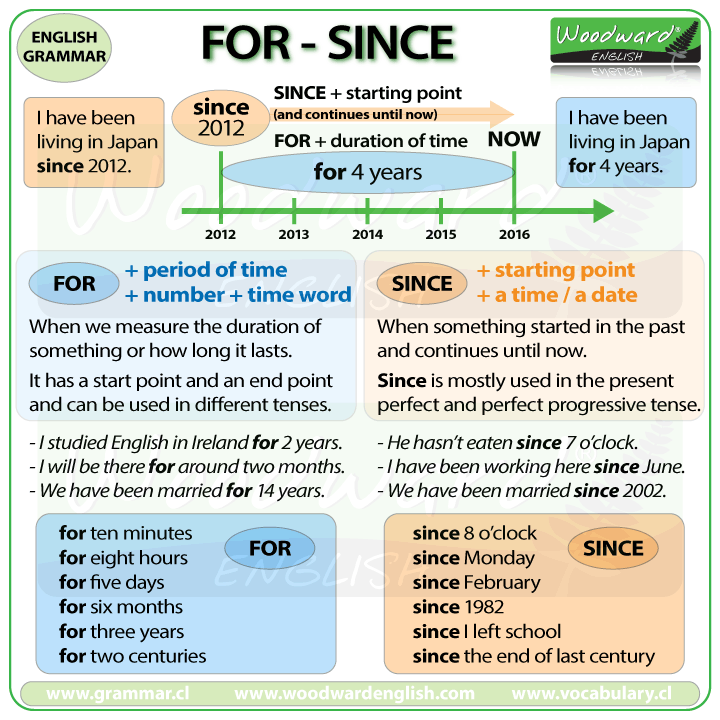
The teacher has just gone out.(She went out a few minutes ago)
The bus has just arrived.
Has he just gone out? Yes, he has.
Mr.Trick has just finished the cake.
ALREADY: The adverb ‘already’ is used when something has happened before we expected. ‘Already’ comes after the auxiliary verb ‘have/has. We use ‘already’ in affirmative.
I’ve already written a letter to my friend.
She’s already finished her homework.
The policemen have already arrested the thief.
YET: The adverb ‘yet’ is used when we are expecting something to happen but it hasn’t happened. “Yet” comes to the end of the clause. We use ‘yet’ in the negative sentences and in questions.
Mrs. Roberts hasn’t replied to my letter yet. (She hasn’t replied but she will).
Thursday 23rd April
Let's review!!!!
There was / were
Affirmative.
There was + singular noun eg. There was a pencil on the table.
some + uncountable noun eg. There was some honey in the jar.
There were + some + plural noun eg. There were some books in your bag.
Negative
There wasn't + a + singular noun eg. There wasn't a cat on the sofa.
There wasn't + any + uncountable noun eg. There wasn't any sugar in the kitchen.
There weren't + any + plural noun eg. There weren't any children in the school.
Question
Was + there + a + singular noun ? eg. Was there a ruler on your desk? Yes, there was.
No, there wasn't.
Was there + any + uncountable noun ? eg. Was there any milk in the bottle?
Yes, there was.
No, there wasn't
Were there + any + plural noun? eg. Were there any pictures on the wall? Yes, there were.
No, there weren't.
Were there + a number + plural noun ? eg. Were there 20 crayons in your pencilcase?
Yes, there were.
No, there weren't.
Monday 20th April
Unit 6: Short questions
⧭Practice
Didn't you?
2. He can't drive.
3. I went to that new restaurant last night.
Do you?
4. I think I'm going to stay at home this weekend.
Are you?
Going you?
5. She won't get the results until next week.
Doesn't she?
Won't she?
6. I wasn't sure about where to go.
Wasn't I?
Weren't you?
7. We don't have enough money.
Don't we?
Haven't we?
8. She hasn't got a job.
Has she?
Hasn't she?
Hello!!
Here we are!! This is our grammar page!!!😉
Yesterday was so much fun, wasn't it?
The trains are never on time, are they?
Nobody has called for me, have they?
eg. You like dogs, don't you?
She doesn't drink coffee, does she?
When the verb is in the past simple, we usually use did or didn'tin the question tag.
eg. We went to the cinema, didn't we?
You didn't see the doctor, did you?
When we use a modal verb (eg. can, could, will,) we use those verbs in the question tag.
eg. She can drive, can't she?
I will see you in the afternoon, won't I?

